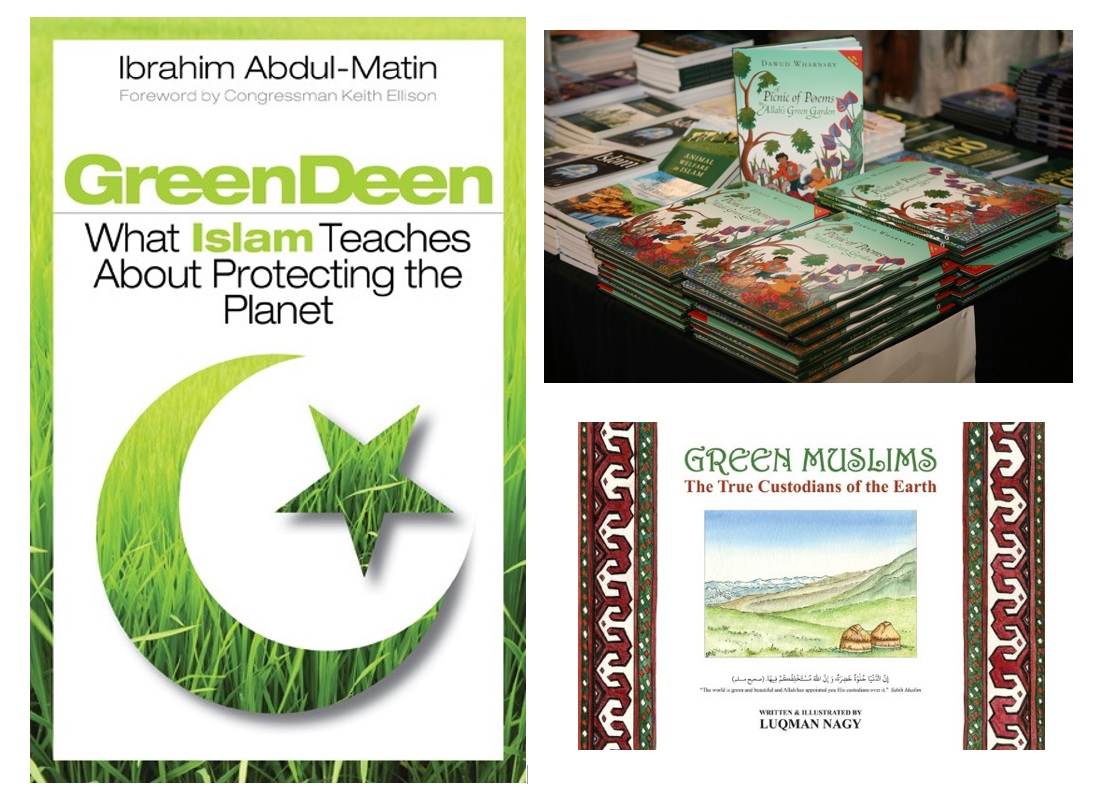By: Chelby Daigle
EnviroMuslims has launched its Eco-Ramadan Challenge, aimed at getting Muslims to think about making their Ramadan more eco-friendly.
Muslim Link interviewed members of EnviroMuslims about their organization and what they hope to achieve with this year's Eco-Ramadan Challenge.
Tell us yourselves
The three core members of the team are: Saba Khan, Sara Khan, and Areej Riaz. All three individuals have a passion for environmental stewardship and sustainability as well as community health and well-being, which is so closely tied to the realm of sustainability.
Both Areej and Saba have pursued degrees related to environmental sciences and sustainability. Saba holds a bachelor's degree in Environment and Business from the University of Waterloo, and Areej holds two Masters of Science degrees: one in Applied Carbon Management from the University of Glasgow and another in Environmental Sciences from Kinnaird College in Pakistan. Both are currently employed in the field of sustainability and climate change.
Sara holds a science degree from the University of Toronto, specializing in Computer Science. Over the years she has been involved in various large-scale community projects through groups such as Islamic Relief Canada, Muslim Welfare Centre, and MAX Mentors, and is leading the group’s projects related to social impact.
While all three individuals are of Pakistani descent, we look to our community for diverse perspectives and ideas and encourage individuals who would like to volunteer with us, or have ideas for future programming, to get in touch.
How did you start EnviroMuslims?
EnviroMuslims was an idea in the works for years. For some of us, we have studied environmental studies, sciences, and sustainability and pursued careers in the industry. For others on our team, although they pursued different career paths, the passion they have about social justice and the health and well-being of our communities tied directly to their desire to get involved in this group.
EnviroMuslims is a movement to engage with the Muslim community around our roles as caretakers of this planet - a gift that has been given to us by Allah swt and that we are responsible for caring for. Seeing the lack of inclusion and diversity in the realm of sustainability and considering the impact climate change has on diverse and vulnerable communities around the world, we saw an opportunity to engage with the Canadian Muslim community around an issue that is so important to our religion, as well as the health and well-being of our community and generations to come.
How did the idea for the Eco-Ramadan Challenge come about?
The idea of the Eco-Ramadan Challenge came from EnviroMuslims’ Climate Change and Environmental Programming Lead, Areej Riaz. Areej moved to Canada in 2019 and was devastated to see the plastic water bottles and food waste that littered a local masjid during the month of Ramadan. Her feelings resonated with the entire EnviroMuslims' team, and the Eco Ramadan Challenge was born.
With the COVID-19 pandemic halting gatherings and closing mosques across the world, the team knew this Ramadan was going to be different. The Eco Ramadan Challenge aims to bring the community together by introducing activities and resources to complete an eco-action every day of Ramadan from home, with the hope of encouraging a shift in behaviors within the community. By developing the Eco Ramadan Challenge, our group’s aim is to encourage individuals to consider the impacts our actions have on the planet and its finite resources, to examine alternative actions that can reduce our environmental footprint, and reduce our collective burden on planet earth.
How are you partnering with other Muslim organizations for this campaign?
While the development of the Eco Ramadan Challenge has been a team project, the support we have received by Muslim organizations sharing the Challenge on their social media platforms has been a true blessing.
The Alberta Muslim Public Affairs Council (AMPAC) helped us in creating a video for their Muslims of Canada video series, which we released on Earth Day. The video introduced EnviroMuslims as well as the Eco Ramadan Challenge.
We have also received support from our friends at Khaleafa, who have included the Eco Ramadan Challenge in their Green Ramadan Journal.The journal allows individuals to track their green goals along with goals related to prayer and health this Ramadan.
More recently, on Tuesday May 5, we had the opportunity to “take over” Green Deen Tribe’s instagram account. Green Deen Tribe is a group based in the United Kingdom who is currently featuring environmental groups around the world and showcasing what an ethical iftar looks like in different countries. EnviroMuslims had the opportunity to spend the day speaking about our work and showcasing the Eco Ramadan Challenge
The COVID 19 pandemic has highlighted the issue of air pollution as many cities are experiencing the cleanest air in years as so many people stay home. Does your campaign explore Air Pollution or other environmental issues related directly or indirectly to the COVID 19 pandemic.
The Eco Ramadan Challenge explores a variety of environmental issues related to water stewardship, energy conservation, food and plastic waste and climate conversations. These actions are not only ones that individuals can take within their homes during a time of physical distancing but can also be adopted past the pandemic and lead to a behavior shift in our community. In terms of direct actions that link to the COVID-19 pandemic, there is an action that encourages families to make cleaning supplies made of natural, chemical-free ingredients.
Through our social media channels, we have shared posts encouraging individuals to properly dispose of gloves and masks, as well as resources around the impact of disposing disinfecting wipes down toilets - a concern many municipalities across the country have shared, as the improper disposal of disinfecting wipes down toilets has increased the stress of our shared infrastructure. We are active in sharing tips, news articles and resources specifically around environmentalism during COVID-19 on our social media platforms.
We were also invited by the MYVOICE Canada team to speak to youth about post-pandemic life specifically around environmental sustainability. During this webinar we discussed issues related to our environmental footprint, and how the pandemic has brought to light the impacts humanity has on the natural environment. Watch the interview with EnviroMuslims by MYVOICE Canada below (It may take a few moments for the video to load from YouTube).
How can people get involved with EnviroMuslims?
We are always looking for like-minded individuals who share our passion about environmental stewardship and sustainability. If you are interested in volunteering or collaborating on one of our coming projects, you can reach us at enviromuslims@gmail.com.
You can also follow us on social media: Facebook: @EnviroMuslims, Twitter: @EnviroMuslims, Instagram: @enviromuslimscanada
Is there anything else you would like to add?
To us, it is important to share that environmental sustainability goes beyond caring for the natural environment: it is an issue linked closely to health and well-being, social justice, inequality, education, and indigenous sovereignty. It is important for us to share with our community that everyone has a role to play in this movement, regardless of your educational background, career, or lifestyle. Through our programming, we hope to introduce the Canadian Muslim community to a wide range of ideas, resources and perspectives to empower individuals to see the power we have to make a positive and eco-conscious change.
This piece was originally published on MuslimLink on May 10 2020.











